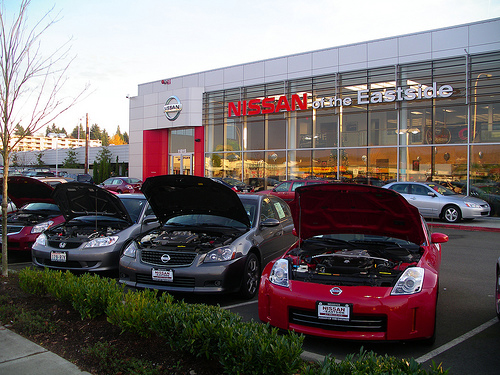Economy Watch: Shoppers Stayed Home in August
Americans decided to put off buying much more than what they ordinarily buy, such as cars, in August. The PPI also remained flat for the month. And both France and Germany asserted that Greece is sticking with the euro zone.
September 15, 2011
By Dees Stribling, Contributing Editor

Retail sales were essentially unchanged in August when compared with July, according to the U.S. Department of Commerce on Wednesday. Apparently Americans decided to put off buying much more than what they ordinarily buy, such as cars: Auto and auto part sales were off by 0.3 percent. Without auto sales factored into the equation, retail sales would have been up 0.1 percent rather than remained flat.
A few kinds of retailers experienced some meager sales gains month-over-month, such as stores that sell electronics and appliances, groceries, sporting goods and building materials. Non-store retailers — catalogs and online sales — were also up. In the losing category for the month were restaurants, clothing purveyors, furniture stores and department stores.
On the other hand, year-over-year, retail sales were up in August by 7.2 percent, Commerce also reported, with most retail categories doing fairly well. So it’s possible August 2011 will be an outlier, with consumer skittishness driven by the debt-ceiling brouhaha (early in the month), the downgrade of U.S. debt (in the middle of the month) and Hurricane Irene (late in the month). For a traditionally slow news period, it was just one bad thing after another.
Produce-Price Inflation Eases Considerably
Separately, the U.S. Bureau of Labor Statistics reported on Wednesday that its Producer Price Index — a measurement of U.S. wholesale inflation — was also flat. That’s including energy and food, however. The “core” PPI, which assumes that businesses don’t need to drive vehicles or eat, rose a scant 0.1 percent without them.
In any case, it’s a considerable slowdown in wholesale inflation from recent months, when the economy was huffing and puffing to blow up the inflation balloon. Between May and July 2011, the core PPI rose at a 3.4 percent annualized rate, higher than it’s been since the mid-80s.
Some components of the PPI were still rising in August, however. For the charmingly named “crude foods”–that is, the raw foodstuffs that later become human comestibles–the increase was 4.7 percent in August, an increase that was down only a little from the previous three-month average increases of 6 percent. Corn prices were through the roof, with production hurt by poor weather this year, driving much of the crude-food rise.
Euro-Talk Reassures Investors, For Now
Germany and France – more specifically, French President Nicolas Sarkozy and German Chancellor Angela Merkel — asserted on Wednesday that Greece is stuck with the euro and the euro is stuck with Greece. They said it more diplomatically, of course. Greek Prime Minister George Papandreou seems to echo that sentiment, for now.
And Wall Street seems to have responded favorably to the reassurances. On Wednesday, the Dow Jones Industrial Average bounced up by 140.88 points, or 1.27 percent, while the S&P 500 gained 1.35 percent and the Nasdaq advanced 1.6 percent.







You must be logged in to post a comment.